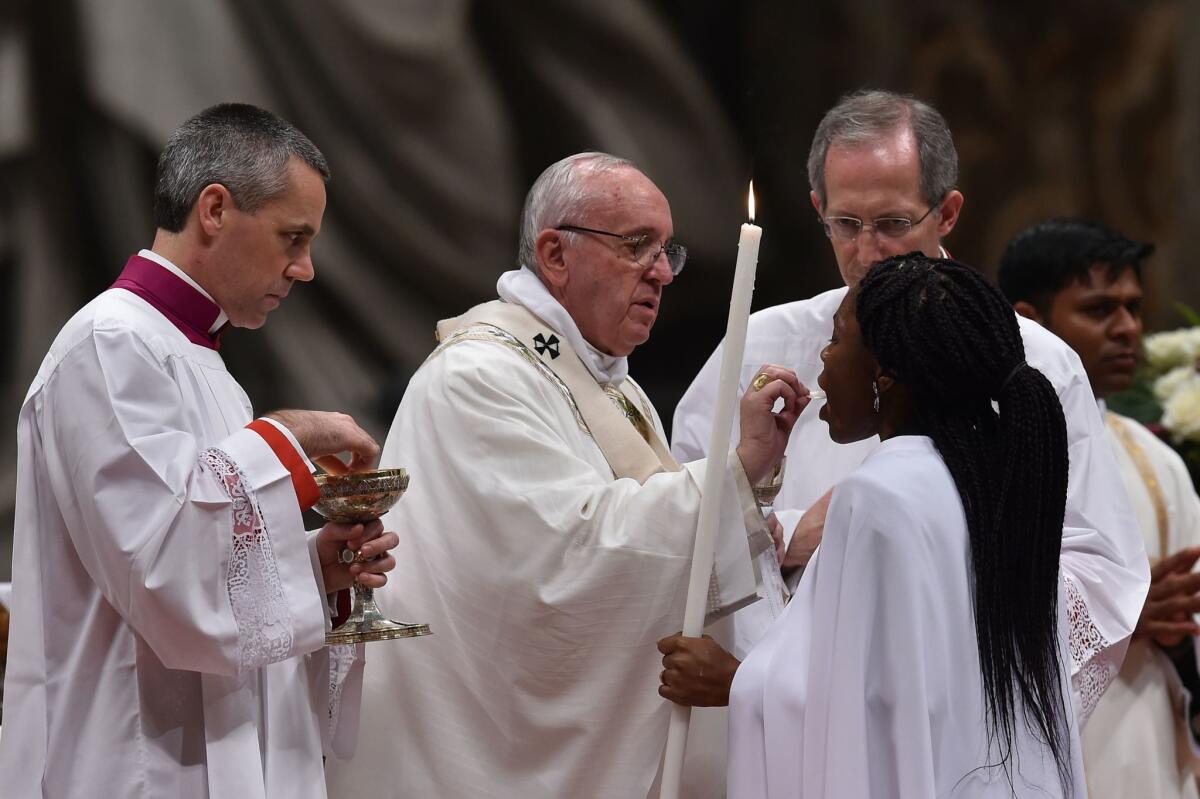Why the sacrament of Communion is central to Catholic beliefs

Pope Francis gives the Communion during the Easter Vigil at the St Peter’s basilica in March.
In his long-awaited exhortation on love and family, Pope Francis opened a door to granting Communion to remarried divorcees, who currently are excluded from the sacrament.
Holy Communion commemorates Jesus’ Last Supper with his disciples during Passover. Catholics believe that during this final meal, Jesus blessed the bread and wine and said, “This is my body ... This is my blood.”
Roman Catholic Church teachings say Jesus is present in the consecrated Communion wafer and wine, also known as the Eucharist, which means thanksgiving, each time parishioners receive them. The bread and wine become the body, blood, soul and divinity of Jesus, according to Catholic doctrine.
To receive Communion, which is a central part of the Mass service, Catholics cannot “be conscious of grave sin,” according to the U.S. Conference of Catholic Bishops.
The church officially excludes remarried divorced Catholics from Communion because it sees their first marriage as still valid, meaning the person is living in sin.
NEWSLETTER: Get the day’s top headlines from Times Editor Davan Maharaj >>
A Catholic conscious of this kind of sin cannot receive the body and blood of Christ without prior confession, the conference says, except for in dire circumstances where there is no opportunity for confession.
ALSO
Speculation surrounds Pope Francis’ long-awaited document on families and divorce
Pope Francis eases the way for divorced Catholics while reiterating limits on gay unions
Migrants, terrorism and risk of breakup are straining Europe, Czech prime minister says
More to Read
Sign up for Essential California
The most important California stories and recommendations in your inbox every morning.
You may occasionally receive promotional content from the Los Angeles Times.










